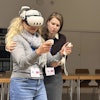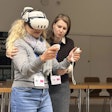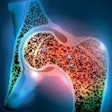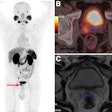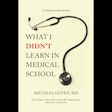
NEW YORK (Reuters Health), Aug 14 - Treatment with the synthetic selective tissue estrogenic activity regulator (STEAR) tibolone reduced the risk of vertebral and nonvertebral fractures in postmenopausal women with osteoporosis .
Tibolone was also associated with a decreased incidence of breast cancer and colon cancer, but an increased risk of stroke caused termination of the LIFT trial after three years, investigators report in the New England Journal of Medicine for August 14.
Conducted in North and South America, Europe, and Australia, the trial included 4,538 women 60 to 85 years of age with osteoporosis. Women were excluded if they had a history of cancer or thromboembolic disease; recent use of estrogen, raloxifene, tamoxifen, or a bisphosphonate; a BMI > 34; or endometrial thickness > 4 mm.
Subjects were randomly assigned in a double-blind manner to tibolone 1.25 mg daily or placebo (2267 in each group). All subjects also received calcium citrate 630-1260 mg and vitamin D 400-800 IU daily.
During follow-up for a median of 34 months, the relative hazard (RH) of vertebral fractures was reduced in the tibolone group (70 versus 126 cases per 1000 person years, RH = 0.55, p < 0.001), as was the incidence of nonvertebral fracture (122 versus 166 cases per 1000 person years, RH = 0.74, p = 0.010). The absolute risk of fractures was reduced more for women who already had a vertebral fracture.
Active treatment was also associated with decreased risk of invasive breast cancer (RH = 0.32, p = 0.01) and colon cancer (RH = 0.31, p = 0.04).
"There was no increased risk of venous thromboembolism, as has been seen with hormone therapy and SERMS, or an increased risk of coronary events, as has been seen with conjugated estrogen combined with medroxyprogesterone," lead author Dr. Steven R. Cummings, at the University of California, San Francisco, and colleagues report.
There was a lower rate of falling in the tibolone group, which the authors attribute to an androgenic effect on lean body mass and muscular function.
However, the risk of stroke was more than doubled (RH 2.19, p = 0.02). Thus, Dr. Cummings' group advises that tibolone "should not be used in elderly women" or "in women who have strong risk factors for stroke, such as hypertension, smoking, diabetes, and atrial fibrillation."
Editorialist Dr. Ghada El-Hajj Fuleihan, at the American University of Beirut Medical Center in Lebanon, also advises that tibolone be avoided among women with breast cancer or at high risk for the disease.
"The health risks and needs of a woman vary greatly during her 30 years of expected life after menopause, and health-risk profiles among women also differ," Dr. El-Hajj Fuleihan points out. "Therein lies the conundrum in searching for an ideal hormonal therapy."
N Engl J Med 2008;359:697-708,753-755.
Last Updated: 2008-08-13 17:00:44 -0400 (Reuters Health)
Related Reading
Tibolone boosts myocardial perfusion in postmenopausal women, February 17, 2006
Copyright © 2008 Reuters Limited. All rights reserved. Republication or redistribution of Reuters content, including by framing or similar means, is expressly prohibited without the prior written consent of Reuters. Reuters shall not be liable for any errors or delays in the content, or for any actions taken in reliance thereon. Reuters and the Reuters sphere logo are registered trademarks and trademarks of the Reuters group of companies around the world.



